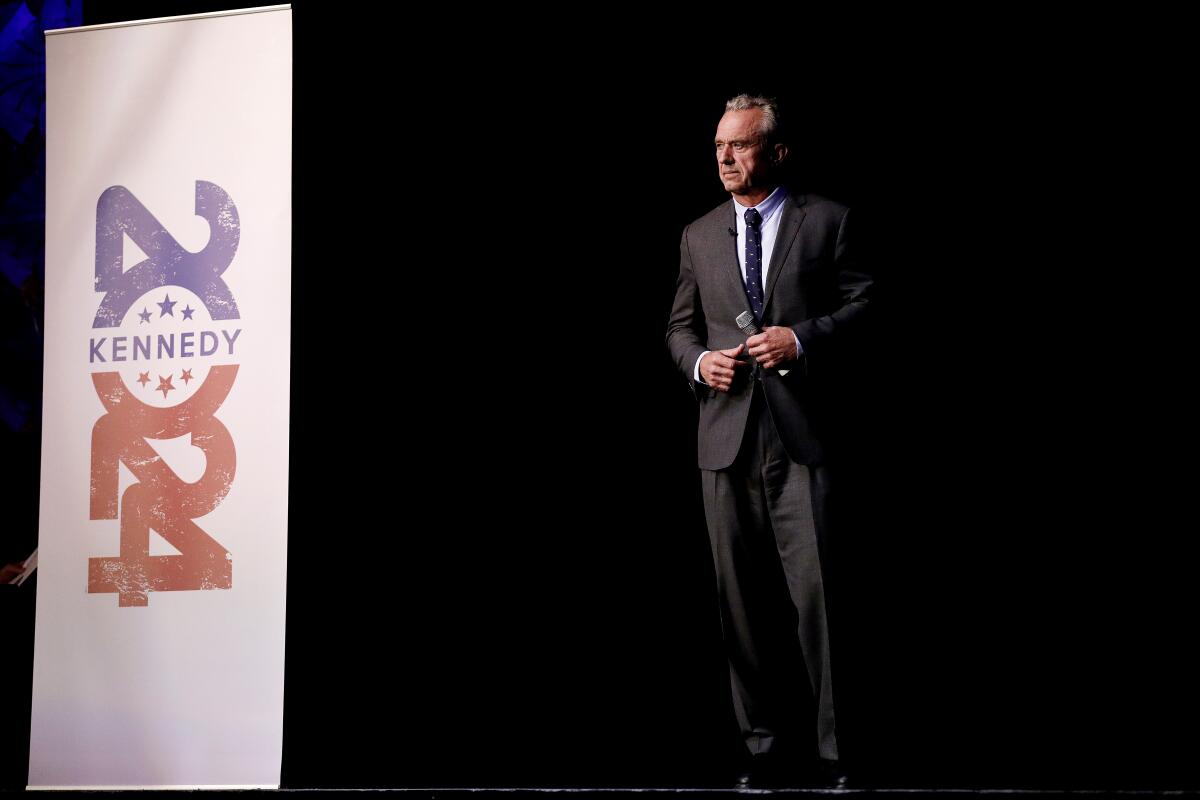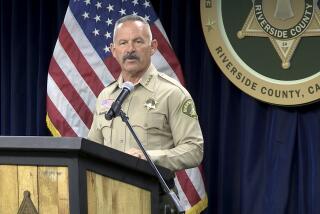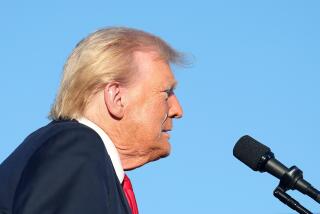Armed man impersonated U.S. Marshal at Robert Kennedy Jr. campaign event, police say

- Share via
A man was arrested at a Robert F. Kennedy Jr. campaign event in Los Angeles on Friday after he allegedly impersonated a U.S. Marshal while carrying a loaded gun, police said.
The event took place at the Wilshire Ebell Theatre in the 4400 block of West 8th Street, where Kennedy was giving a speech to mark Hispanic Heritage Month by discussing the need for “a comprehensive policy to secure the border and ease immigration pressure,” according to a news release.
The man appeared at a side entrance to the theater, claimed to be part of Kennedy’s security team and told personnel that he needed to be taken to the candidate immediately, Kennedy’s team said in a subsequent news release. Security guards detained him and called police, the release said.
Police received a radio call at about 4:30 p.m. reporting a man with a loaded gun, a shoulder holster and a badge that stated he was a U.S. Marshal, said J Chavez, public information officer with the Los Angeles Police Department. The man did not brandish a gun or threaten anyone, he added.
The man was arrested and taken to Wilshire Station, then booked on suspicion of a felony charge of carrying a concealed firearm, Chavez said. Police identified him as Adrian Paul Aispuro, 44. He remained jailed Saturday in lieu of $35,000 bail, booking records state.
Kennedy’s team said that police also took custody of a second man who arrived with Aispuro and had a backpack containing a handgun, multiple knives and extra ammunition. Police said they had no record of a second arrest.
Kennedy’s father, Robert F. Kennedy, was assassinated at Los Angeles’ Ambassador Hotel in 1968 just after winning California’s Democratic primary. His uncle, President John F. Kennedy, was assassinated in 1963.
In the wake of the incident, Kennedy’s campaign said it plans to again apply for U.S. Secret Service protection for the candidate after applications filed in May and August were rejected.
The protection is extended only to “major” presidential and vice presidential candidates, as identified by the Secretary of Homeland Security, and generally only within a year prior to the election, although exceptions are made on a case-by-case basis for “extraordinary” circumstances, according to guidance released by the Secret Service.
More to Read
Sign up for Essential California
The most important California stories and recommendations in your inbox every morning.
You may occasionally receive promotional content from the Los Angeles Times.











